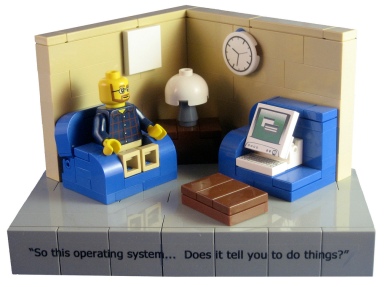No treatment method is for everyone, but I think talk therapy gets an especially bad rap, considering the profound upsides.
So today – a little celebration of therapy, in list form:
1. It turns out that there are a lot of treatments out there that work really well and really quickly. EMDR can take as little as one session and can considerably lessen the excruciating feelings left by a traumatic event. Treatment for anxiety and panic has come very far too. Therapists with the right certifications might be able to ease your pain a lot more quickly and easily than you think.
 2. Therapy can reduce your blind spots. There’s nothing like talking to the same person every week about your wellbeing to make you realize things about your wellbeing. And if you’re not seeing clearly when it comes to how you feel (and so many of us aren’t), then you’re working with a huge handicap when it comes to feeling better.
2. Therapy can reduce your blind spots. There’s nothing like talking to the same person every week about your wellbeing to make you realize things about your wellbeing. And if you’re not seeing clearly when it comes to how you feel (and so many of us aren’t), then you’re working with a huge handicap when it comes to feeling better.
3. Even if you have a fantastic support system, chances are you need more support. Depression attacks the very things we need to see ourselves through the recovery process – motivation, energy, hope. Sometimes I think of therapists as expert advocates – trained professionals who have been through it before, who know the ropes and can help us navigate this crushing disease.
4. Let’s face it, talking helps. Being listened to helps. Having someone who won’t recoil at your dark thoughts, who won’t shun you your jealousies or be scared by your fears – it’s priceless. It allows you some space to have perspective, to welcome in the META THOUGHTS and learn some ways to cope with all. those. overwhelming. feelings.
Here’s to your health.
Photo by Nevil Zaveri on Flickr




